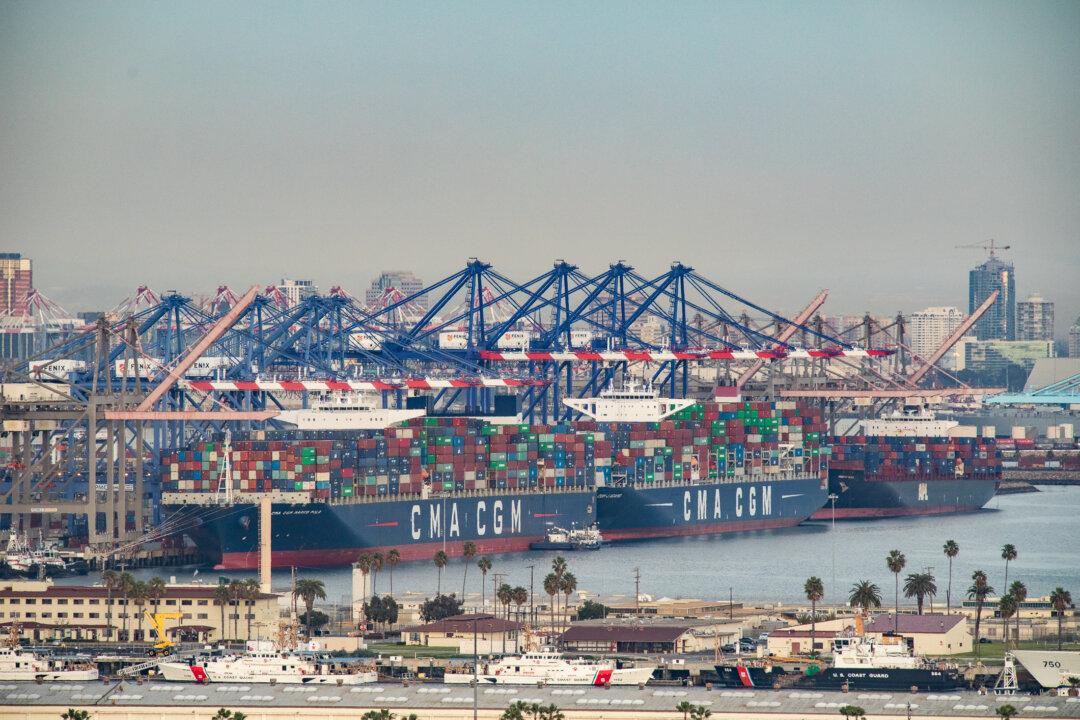The Los Angeles City Council authorized Oct. 27 port officials to impose hefty new fines as another way to try to clear the epic backlog of shipping containers clogging Los Angeles and Long Beach ports.
The new surcharge applies to shipping containers held for longer than usual on a growing flotilla of ocean carriers that now number 76 off the Southern California coast.





